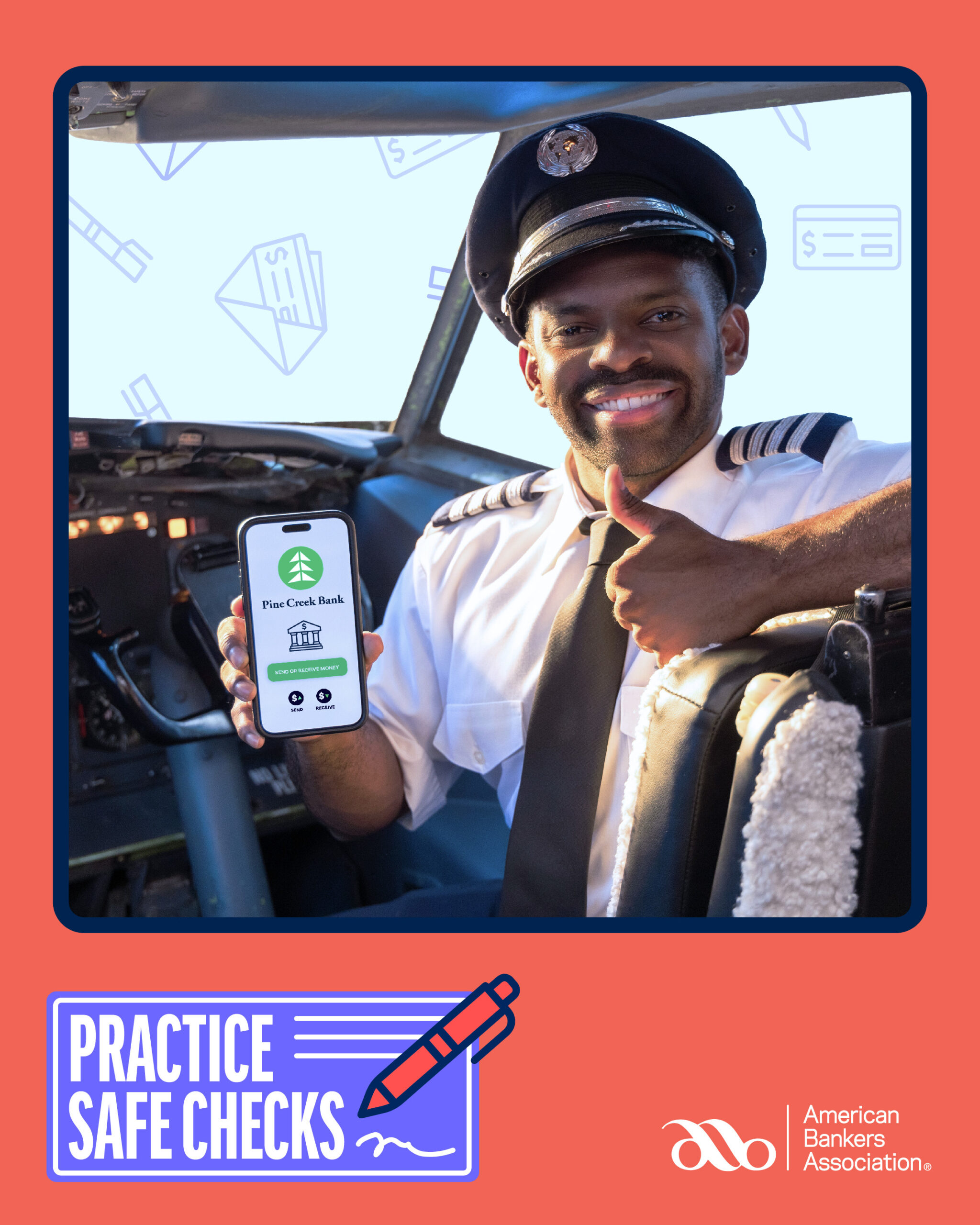Are you still practicing safe checks?
While the use of personal checks continues to decrease, the amount of fraud is still climbing. That’s because an unprotected check is a gold mine for criminals.
Throughout the month of October, the American Bankers Association has fought back against phishing scams with its annual #BanksNeverAskThat campaign. It’s all part of a month-long awareness campaign. Once again, Regions Banks is proud to participate in this effort to educate our customers and the public.
“Checks continue to be the leading payment channel for fraud,” said Jeff Taylor, head of Commercial Fraud Forensics at Regions Bank. “Following these tips may help you avoid becoming a victim.”
In fact, check fraud is so big that the ABA’s #PracticeSafeChecks campaign is part of year-round efforts to help you recognize the red flags of a scam.
Stolen checks – Criminals frequently raid mailboxes and intercept mail, snatching checks so they can alter them and steal your money.
Tampered checks – Scammers employ chemicals to “wash” checks, erasing and rewriting details to siphon funds into their accounts.
Fake checks – Armed with routing and account numbers, criminals easily craft counterfeit checks using modern printers and software.
But there’s good news. You can protect yourself by following these tips.
7 Steps to Writing Safer Checks
- Use permanent gel pens – Just like wearing your seatbelt when you fly, protect yourself by using permanent ink when you write a check.
- Avoid blank spaces –Fill those overhead compartments before takeoff! Similarly, make sure you fill out every blank space on a check so criminals can’t fill them in instead.
- Withhold personal information – The person in the middle seat doesn’t need to know your whole life story, just like you don’t need to add personal info to your checks.
- Review accounts –Monitor your account activity on your online banking platform as attentively as you await a safe arrival message from a loved one. Regular reviews ensure you quickly notice anything out of the ordinary.
- Check your checks –Regularly review your paid checks on your online banking platform as thoroughly as airport staff check your boarding pass. Ensure the endorsement is correct and reflects the intended payee and amount to guard against fraud.
- Use digital payment options –If you’re switching to digital boarding passes, why not switch to your bank’s payment app or online bill pay for fast and secure payments?
- Follow up – Just as you confirm your flight details, make sure to follow up with payees to confirm they’ve received and deposited your check.
The ABA’s Practice Safe Checks landing page also has additional tips, including what to do if you suspect fraud.
The annual #BanksNeverAsk that campaign is robust. It includes details on how to spot various phishing scams (via email, text, phone and payment apps). In addition, you can test your knowledge with quizzes, including the popular Scam City, and watch some short but entertaining videos.
Regions is proud to participate as part of ongoing efforts to educate the public. Our mission is to help keep others safe.
So, what are you waiting for? Join Regions and the ABA throughout the month of October. Remember, #BanksNeverAskThat.

Additional Resources from Regions.com
Related Articles from Doing More Today
Any links to other websites are merely and strictly for your convenience. Each site is operated or controlled by a third party that is unaffiliated with Regions. The privacy policies and security at the linked websites may differ from Regions privacy and security policies and procedures. You should consult privacy disclosures at the linked websites for further information.
The information presented is general in nature and should not be considered, legal, accounting or tax advice. Regions reminds its customers that they should be vigilant about fraud and security and that they are responsible for taking action to protect their computer systems. Fraud prevention requires a continuous review of your policies and practices, as the threat evolves daily. There is no guarantee that all fraudulent transactions will be prevented or that related financial losses will not occur. Visit regions.com/STOPFRAUD or speak with your Banker for further information on how you can help prevent fraud.